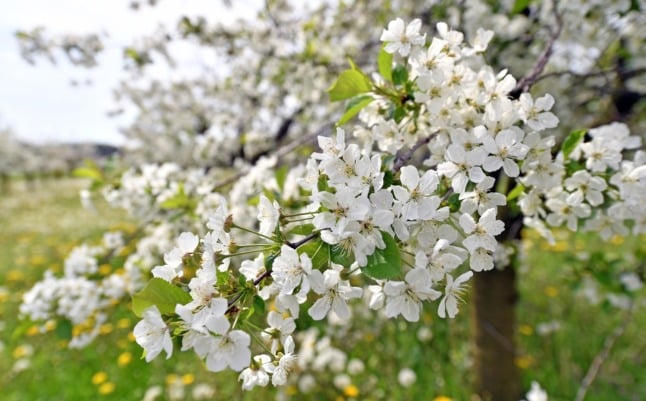Der Barbarazweig, translated literally to “Barbara branch”, are branches cut from cherry, apple or plum trees that, according to German Christmas custom, should bloom pretty white flowers just in time for Christmas morning. These bloomed branches will then bring you good luck in the new year. However, if the branch fails to bloom, bad luck will come your way. But where does this legend come from?
Saint Barbara was the daughter of a merchant who was imprisoned due to her father’s disapproval of her conversion to Christianity. On her way to the dungeon, a cherry branch got caught in her dress. Every day of Barbara’s sentence, she provided the cherry branch with lots of water until the day of her execution, when the branch finally bloomed.
While the legend describes a cherry branch, nowadays apple or plum branches are used, as well as other garden shrubs such as blackthorn, forsythia, and hazelnut.
READ ALSO: Seven classic Christmas traditions still taking place in the pandemic
How do you do it?
To ensure a blooming branch on Christmas morning, it is recommended that you cut the branch on December 4th. This also coincides with St. Barbara’s Day or the feast of St. Barbara, which is celebrated in several other Roman Catholic and Anglican countries, such as Italy, France and the UK.
Immediately after cutting off a branch or a few (for extra luck of course), place them in a freezer for around 12 hours, then place them in lukewarm water overnight. Finally, place them in a vase with room temperature water and watch them bloom, making sure to change the water every three to four days.

The custom also developed into a wedding tradition in German households. Unmarried girls would hang slips of paper with the names of their suitors on the branches. Whichever branch blossomed first was to be chosen as the girl’s husband.
While this tradition isn’t the most well-known – even in Germany it is becoming increasingly uncommon – it is a great way to add a touch of spring bloom to your festive decorations.
Examples:
Vergiss nicht, deinen Barbarazweig zu gießen, sonst haben wir im neuen Jahr Pech.
Make sure to water your Barbarabranch, or we’ll have bad luck in the new year.
Heute ist der vierte Dezember, also ist es schon so weit, einen Barbarazweig abzuschneiden.
Today the fourth of December, so it’s already time to cut off a Barbarabranch.



 Please whitelist us to continue reading.
Please whitelist us to continue reading.
Member comments